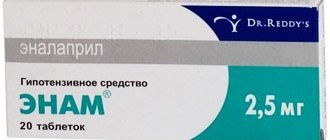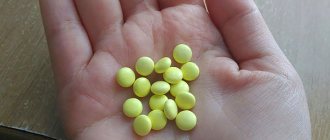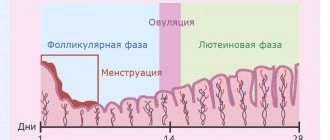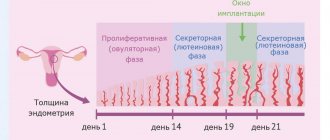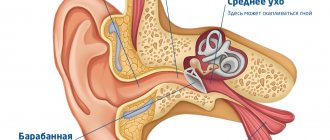How to remove bad breath? Effective, time-tested methods
- "Culprits" of bad breath
- What to do to eliminate unpleasant odor?
- Express methods
- Medicines
- Herbal breath fresheners
Bad breath is always an obstacle to communication with others. Therefore, the problem should be urgently eradicated so that it does not become the cause of psychological disorder and the appearance of complexes in a person. But first you need to find out what became the source of bad breath. Indeed, in most cases, halitosis indicates that serious disruptions are occurring in the body.
Bad breath: physiology or disease?
Bad breath
in medical language it is called
halitosis
. There are physiological and pathological halitosis. Bad breath often appears in the morning. During the night, bacteria and their metabolic products accumulate in the mouth, which causes a bad odor. This type of halitosis is physiological and can be eliminated by simply brushing your teeth. Physiological halitosis also includes odor caused by eating a number of foods, such as garlic, onions, cabbage. This smell will disappear on its own as soon as the substances that caused it are eliminated from the body. But it also happens that an unpleasant odor is not eliminated using hygiene procedures; in this case, most likely, it is of a pathological nature.
Appears after eating cedar
After eating pine nuts, even a completely healthy person may experience bitterness in the mouth. Usually this phenomenon is mistakenly attributed to the choleretic properties of the product, but such a reaction cannot occur with high-quality pine nuts.
Meanwhile, bitterness in the mouth appears immediately after eating and lasts for several days; sometimes other symptoms of intoxication may appear - nausea and pain in the liver area. All this clearly indicates that the pine nuts were artificially grown and imported from China. Many suppliers pass off Chinese nuts as domestic products, since they are cheaper to purchase. But there are many reasons why it is better to refuse such a food product.
Bad breath: causes
The most common cause of unpleasant odor is the active activity of pathological bacteria in the oral cavity. Diseases such as caries, periodontitis, pulpitis, periodontitis, gingivitis, stomatitis, as well as the formation of tartar can lead to persistent bad breath.
The second place among the causes of unpleasant odor is dry mouth (the medical term is xerostomia
). Mica, which moisturizes our mouth, has bactericidal properties. It kills bacteria, neutralizes their waste products, rinses and cleanses the oral cavity. If there is not enough saliva produced, bacteria are activated, resulting in an odor. Dry mouth can be a consequence of illness or taking a number of medications. It can also be caused by age: over time, the salivary glands begin to work less intensively, the composition of saliva changes, and its antibacterial properties are lost.
The smell can also be caused by ENT diseases: sore throat, chronic tonsillitis, sinusitis, runny nose.
Another cause of unpleasant odor is diseases of the internal organs. It can be:
- renal failure;
- liver failure;
- gastric diseases (gastritis, stomach ulcer);
- lung diseases.
Smoking is also a cause of persistent bad breath. The smell is caused by substances contained in tobacco smoke and deposited in the oral cavity. The only way to eliminate the unpleasant odor in this case is to quit smoking.
That's the salt!
Article on the topic
Between chocolate and cucumber. What do taste preferences indicate? Most often, saliva becomes salty if a person neglects oral hygiene or simply experiences thirst, which, by the way, may not be felt. Hidden fluid deficiency often occurs due to taking medications, drinking alcohol, coffee, tea, cola, and also due to smoking. Therefore, if you experience such sensations, brush your teeth more thoroughly and drink at least 8 glasses of clean water a day. But if this doesn’t help, you need to figure it out. The causes of a salty taste may include:
infectious and fungal diseases of the nasopharynx - for example, sinusitis: mucus that accumulates in the sinuses can drain into the mouth and cause a salty taste. In this case, consultation with an ENT specialist is necessary;
diseases of the salivary glands , which develop due to the entry of streptococci, staphylococci, pneumococci into the salivary ducts. Go to the dentist!
Continued: Bad taste in the mouth, causes →
What is bad breath like?
Peculiarities of odor can indirectly indicate the source of problems.
Hydrogen sulfide smell
(the smell of rotten eggs) indicates rotting protein substances. This smell is typical for digestive problems. A persistent hydrogen sulfide odor may indicate gastritis with low acidity or a stomach ulcer.
Sourish smell
and a corresponding taste in the mouth is noted with gastritis with high acidity. This smell may appear at an early stage of the disease, when other symptoms are not yet present.
Bitter smell
and the taste in the mouth is typical of liver and gallbladder diseases. An additional symptom is the appearance of a yellow coating on the tongue.
Smell of acetone
and the accompanying sweet taste in the mouth is a characteristic symptom of diabetes.
Urine smell
from the mouth indicates a disease of the genitourinary system (primarily the kidneys or bladder).
Stool smell
from the mouth can occur due to intestinal diseases (dysbacteriosis, intestinal dyskinesia, intestinal obstruction).
Putrefactive
bad breath is typical for dental diseases (inflammatory processes of teeth and gums).
Bitterness in the mouth
Ulcer
Vomit
Diabetes
Gastritis
20002 08 February
IMPORTANT!
The information in this section cannot be used for self-diagnosis and self-treatment.
In case of pain or other exacerbation of the disease, diagnostic tests should be prescribed only by the attending physician. To make a diagnosis and properly prescribe treatment, you should contact your doctor. Bitterness in the mouth: causes of occurrence, what diseases it occurs with, diagnosis and treatment methods.
Definition
Very often, when a symptom such as a bitter taste in the mouth appears, patients do not rush to visit a doctor, but try to cope with it on their own, eating or washing down the unpleasant sensation, as well as using all kinds of rinses. In order to effectively get rid of bitterness in the mouth, you should consider the types and possible causes of its occurrence.
Types of bitterness in the mouth
In most cases, bitterness in the mouth is felt in the morning - immediately after waking up. After hygiene measures and eating, it may disappear until the next morning.
Sometimes the bitter taste returns after physical work, sharp bends or in a horizontal position.
Bitterness may occur after taking medications (antibiotics, analgesics, anti-inflammatory, anticonvulsants, lipid-lowering, antihypertensive, hypnotics) or certain foods (for example, pine nuts and almonds), which indicates that it is not associated with diseases.
Sometimes patients, especially older ones, complain about the bitter taste of any food.
Possible causes of bitterness in the mouth
Poor oral hygiene and inflammatory diseases
(most often gums) can lead to bitterness in the mouth In these cases, food debris, accumulating between the teeth and in the gum pockets, begins to decompose and gives an unpleasant taste, accompanied by a putrid odor.
A fairly common cause of bitter taste is the accumulation of combustion products of tobacco mixtures (tars) on the oral mucosa.
However, the main reason for complaints of a bitter taste is associated with reflux of bile into the esophagus and oral cavity.
Usually this is not the only symptom; sometimes it is accompanied by vomiting bile, belching, pain and a feeling of bloating in the stomach. Pain in the upper abdomen and right hypochondrium is also possible, sometimes it radiates to the back and/or the right subscapular region. The pain does not change or decrease after bowel movements, when changing body position, or after taking antacids (drugs that relieve heartburn).
The reason for the reflux of bile into the esophagus is most often impaired motility (dyskinesia) of the gastrointestinal tract and biliary tract. Bile is necessary for the emulsification of fats, which determines its production and entry into the duodenum.
When motility is impaired, bile from the duodenum flows back into the stomach (duodenogastric reflux).
And in cases where the lower esophageal sphincter is also open, bile enters the esophagus (duodenogastroesophageal reflux) and the oral cavity, causing a feeling of bitterness.
This occurs with duodenal ulcers, obesity, diabetes, a low-calorie diet, during pregnancy, and also when feeding through a nasogastric tube (a thin tube is passed through the nose into the stomach so that liquid food can be delivered. This is necessary if the patient does not can eat food in the usual way.).
Feeding through a nasogastric tube
Bile reflux also occurs due to its stagnation in the duodenum (duodenostasis) after removal of the gallbladder. Overflow of the duodenum leads to stimulation of the vomiting center and causes nausea, vomiting and a bitter taste in the mouth.
The feeling of bitterness in the mouth due to impaired motility of the biliary tract also accompanies a number of systemic diseases, which are treated by a rheumatologist.
Biliary dyskinesia is characteristic of hormonal disorders (including hormone replacement therapy). In case of disorders of the brain, in particular with damage to the medulla oblongata, dyskinesia is caused by a violation of the nervous and endocrine regulation of the biliary (bile) tract.
Which doctors should I contact if I have bitterness in my mouth?
If a feeling of bitterness appears in the mouth, the first thing you need to do is sanitize the oral cavity by visiting a dentist.
If there are no dental problems, you should contact us to receive a referral for the necessary tests. After interviewing the patient and receiving the results of blood and urine tests, treatment can continue or.
Diagnostics and examinations for the appearance of bitterness in the mouth
If the examination does not reveal dental problems, as well as signs of rheumatological (systemic) diseases, the doctor prescribes the patient clinical and biochemical blood tests to assess the level of liver enzymes (ALT, AST), bilirubin and alkaline phosphatase, and a general urine test.
Bad breath: what to do?
The fight against bad breath begins with careful adherence to good oral hygiene. If the source of the odor is bacterial activity, proper brushing of your teeth will help. Teeth should be brushed not only from the outside, but also from the inside, and also treat the chewing surface of the teeth. The brush angle should be 45°. Using dental floss, hard-to-reach areas between teeth are treated. If your teeth are in poor condition, simply brushing your teeth will not solve the problem. You will need to visit a dentist and remove tartar, and if your teeth have caries, cure them. It is recommended to visit the dentist at least once or twice a year.
It is also necessary to combat dryness of the oral mucosa. If you feel dry mouth, take a few sips of water and rinse your mouth. However, it should be remembered that frequent dry mouth can be a symptom of serious diseases. However, like the unpleasant smell itself. Therefore, if you have persistent bad breath, you should definitely see a doctor and undergo an examination.
Treatment of digestive diseases
If the oral cavity is sanitized, but the smell remains, you need to contact a gastroenterologist. Before treating halitosis, an examination will be carried out to find the cause of the disorders. Gastritis and ulcers are associated with poor diet, but inflammation of the gastric mucosa is supported by Helicobacter bacteria. You need to get rid of them comprehensively.
To do this, the doctor will prescribe the following groups of medications:
- antacids – to reduce acidity;
- antibiotics – drugs to kill bacteria;
- healing agents - bismuth nitrate or De-nol to restore the mucous membrane.
In the treatment of cardiac sphincter insufficiency, when the opening between the esophagus and the stomach does not close, antacids are also used, supplemented with prokinetics that improve peristalsis. Treatment of digestive diseases is impossible without following a special diet.
Diagnostics
It is important to know that independently determining the cause and choosing treatment methods is strictly prohibited, since incorrectly selected drugs can only harm the body. The fight against this manifestation should begin and continue only after a specialist makes an accurate diagnosis.
Methods for diagnosing this symptom:
- Blood tests: general and biochemical - help to identify the presence and degree of the inflammatory process, evaluate liver function, parameters of fat and pigment metabolism.
- Analysis of stool for the bacteriological composition of intestinal flora - detects dysbiosis.
- Fecal analysis (coprogram) - reveals disturbances in the digestion of food, provides information about the possible presence of parasites in the intestines.
- X-ray of the abdominal organs - prescribed to identify stones in the ducts and possible calcification of the pancreas.
- Ultrasound of the hepatobiliary system (ultrasound) is an extremely informative method for diagnosing pathologies of the liver, gallbladder and ducts. With its help, you can determine the parameters and location of the gallbladder, bile stagnation, the presence of stones, neoplasms, and polyps.
- Computed tomography of the abdominal organs - with its help you can examine any area in the peritoneum layer by layer and assess the extent of organs affected by pathological changes.
- Endoscopic examination of the gastrointestinal tract (fibroesophagogastroduodenoscopy, fibrocolonoscopy) is carried out to check for the presence of concomitant diseases and for differential diagnosis.
- Immunogram and analysis for tumor markers - given if a malignant process is suspected.


